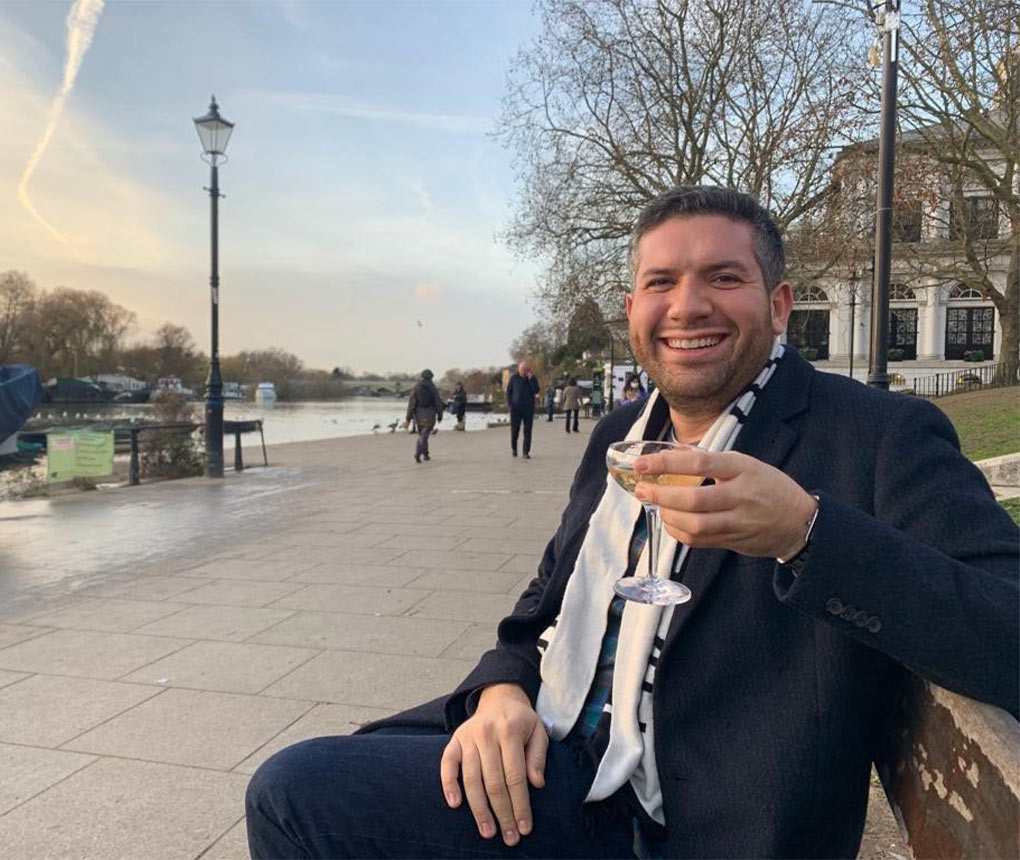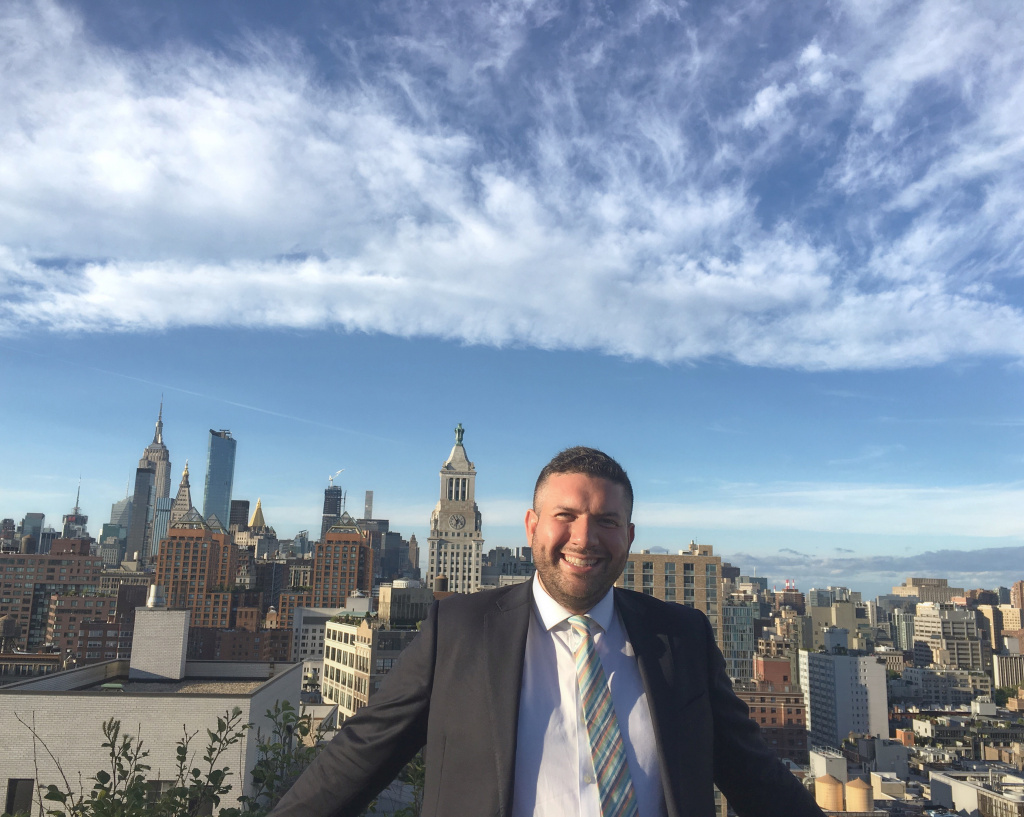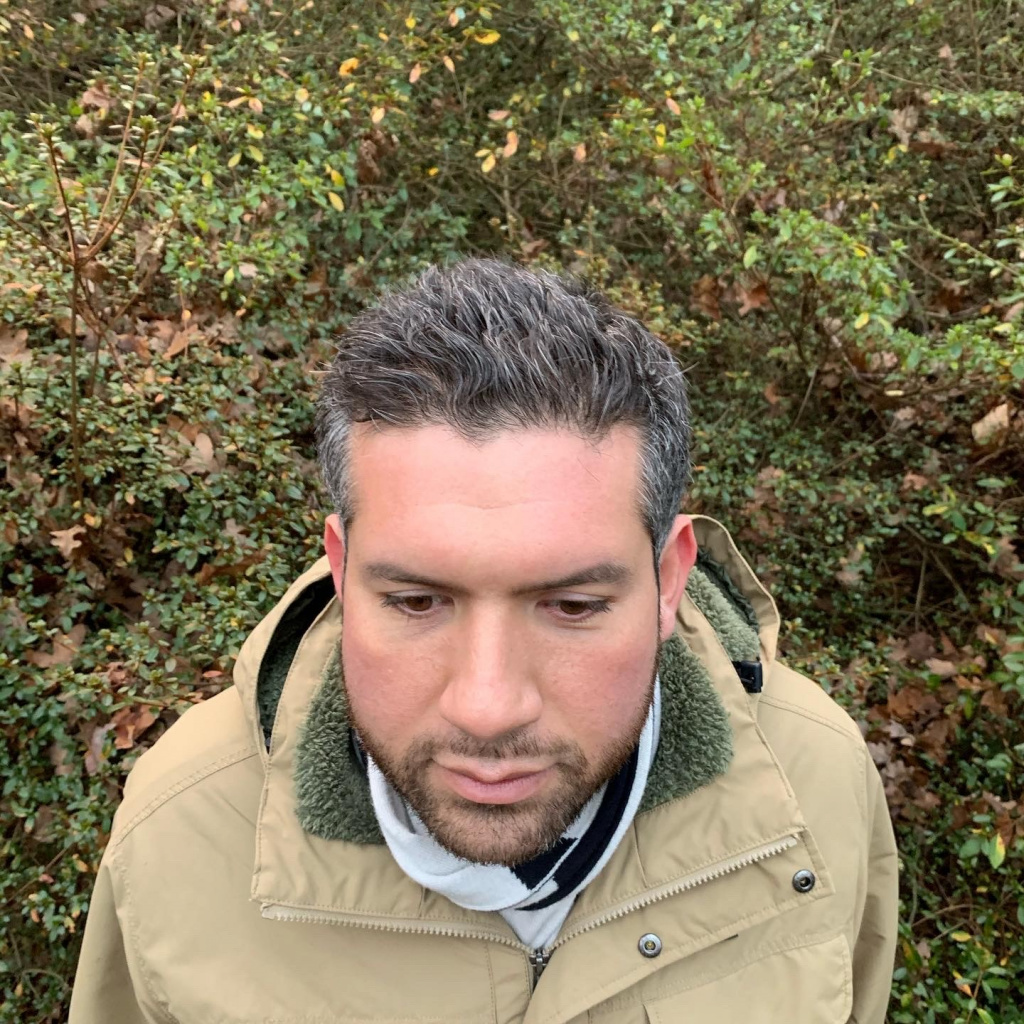How did you get there? Michael Brown

If you’ve ever been fortunate enough to meet, or lucky enough to work with Michael Brown, then you’ll remember the first thing that stood out to you, and by now of course, you’ll be most familiar with, just how genuinely authentic he really is. He is, simply, the real deal. Over indexing on empathy, curiosity, creativity and enthusiasm for his work, his clients, his colleagues and the industry – he genuinely cares.
Michael also does so much to push for equality in research and is the Founding Chair of MRSpride, our sector’s LGBTQ+ network, regularly hosting events that provide a platform for voices from across the community.
I caught up with Michael on what would have felt like any regular day in lockdown captivity however I left the conversation armed with my own bundle of inspiring pointers and reminders to weave into my own journey.
We chatted about his career and how he ended up as a Partner, Insight & Cross Culture, at Universal McCann, the global media and advertising agency. In my summary below you’ll read his priceless lockdown advice for young researchers on how to progress and stand out while working from home. He also unlocks several unwritten must-haves if you want to succeed in market research and insights. Finally, he offers up his advice on ‘what clients really want’ from agencies, and how he overcame his fear of presenting.
Hello Michael! Great to catch up… [edited to remove general chatter]. So, how did you get into the industry, and take us through how you got to this point?
As the industry cliché goes, inadvertently. A school friend worked as a Project Manager at a then-named company called Research Now, now Dynata, and suggested I apply to work in their client service team delivering fieldwork to media and creative agencies. The role gave me an appetite and confidence for sales and growing client relationships built in trust.
One of those relationships was with an extraordinary woman called Jo Rigby, who was my client as Global Head of Insight at Omnicom Media Group. Jo became Managing Director at MESH Experience, a customer experience measurement agency, and asked me to join her team in delivering brand tracking and campaign evaluation to their flagship account, Sky.
I was very fraught with self-doubt in making the move into full-service research; fieldwork had, in my opinion, been the Cinderella of the research industry, hard-working and rarely considered, and I felt like I might be out of my depth as a researcher. The transition was tricky, but it worked. I’m glad that, through the richness of data and tech smarts that live in that part of the research world, they are now rightly at the fore.
After a couple of learning years at MESH, I moved to where I work now, UM, which stands for Universal McCann, which is a media agency that belongs to Interpublic Group. Again, this was a daunting move into a different kind of company, and it was thanks to another extraordinary woman called Yvonne O’Brien, who hired me, that I had the chance to do so.
Research in a media agency is very rewarding; there is a big emphasis on campaign evaluation, and also on broader cultural research to understand audiences.
In 2017, I created UK by UM, our agency’s thought leadership project, which uses research to quantify and tackle stereotyping in society, hinging on the premise that the cultural influence held by advertising and brands can help to tackle prejudice. This matters deeply to me.

And if you had to distil everything you’ve achieved right down, what would you say are three secrets to your success so far?
Firstly, caring deeply about people.
Let people in, whether they’re colleagues, clients or partners.
The lines between work and home are blurred nowadays, perhaps driven by the overdue cultural shift towards bringing our whole selves to work. Client relationships can often become friendships, especially if they’re longstanding working relationships. We’re all just people trying to do good work and enjoy the journey, and it’s a lot more fun if you commit to long-haul relationships. Life takes many turns, and our industry is relatively small, so you’ll almost certainly work again with many of your contacts today in you future roles
Second, caring deeply about clients’ business: I have always made the effort to gain the deepest possible understanding of the broader marketplaces in which our clients operate. Key to this is following industry trade press (i.e. if you work with a supermarket brand, follow The Grocer for updates). Twitter is great for following the latest happenings. You will be the best partner to clients if you know their world well, perhaps even proactively sharing nuggets they might not have seen
And third, caring deeply about the world: Everyone is able to make a positive difference in the world, and goodness knows, there are plenty of causes that need support and energy. From making your office more sustainable, to adding disability, ethnicity and sexuality screening questions into questionnaires in order to give clients insights that could help them optimise their approaches towards minority audiences – there is so much we can do. LinkedIn is a great place to connect with other change-makers
In short, I think the key to success is all about wearing your heart on your sleeve, not being embarrassed to show that you really give a s***, and helping to make change happen.
Boom. Love that. So, come on, if you’re allowed to say, what’s the most interesting, crazy, fun project you’ve ever worked on?
Brand tracking for a leading Polish meats brand! I previously knew precisely nothing about the category and didn’t know what to expect. We were tracking brand health in the UK amongst Polish people, sourcing our sample by working with Polish media owners.
The project proved to me something I truly believe, which is that sometimes the most unusual and understated research briefs have the potential to be the most interesting. And also that you get out of projects as much as you put into them. The project had the benefit of having lovely clients and debriefs up in Norfolk, meaning an endless odyssey of train rides, which I love, as it allowed for lots of countryside gazing and chats. The study also gave me an enduring love for kabanos.
Just making a note to add that to my next shop! So, you’re now client side, and I know agencies and always striving to unlock the key to understanding their clients, but in your opinion, what do you need from an agency, what do clients really want from their agency?
Aside from passion and expertise in their business, I think storytelling flair is critically important to clients.
I think half of the task in delivering great research is analytical rigour; the other half is about delivering your analysis in a way that is compelling, that has colour, and that is simple to understand.
Clients have many pressures on their time and attention, as we all do, and so it falls on us to communicate to them the most important insights and recommendations in a way that is crafted to be irresistibly comprehensible. I think this will be even more valued in the future, so investing in great branding, data visualisation, and design, as well as and having discipline in stripping back overly-busy charts – should all be a priority today.
Not being in the office and around colleagues, it is incredibly challenging, for younger researchers to stand out. What two bits of advice do you have for a junior researcher, working from home in lockdown, on how they can best stand out and impress their teams?
These are very tough times – a real marathon in resilience, and everyone can be excused for having lost some of their effervescence, especially on those tougher lockdown days.
At UM, we’ve been thinking about this quote from Albert Camus: “Sometimes, carrying on, just carrying on, is the superhuman achievement.”. Just getting our day-to-day work can feel very difficult in circumstances where it can be hard to summon up the motivation and focus needed to lock in to detailed tasks like questionnaire writing. So, my tips are:
Good communication is particularly important as we’re all so far apart right now. Communicate as openly as you possibly can with your line manager, not being afraid to share if you’re having a difficult day with your mental health.
Do what you can to accept that this is a temporary situation, which is perhaps best weathered by embracing the small upsides, like having the time to cook proper food at home and not having to rush for the train. Seek humour and levity, including in the content you consume, though accept that some days it might be very tough, if not impossible, to laugh like you normally might, and like one day soon we will again.
And thinking more long terms now, what two things should junior researchers focus on as they progress in their careers?
Know your value: Market research is not quite as crowded an employment market as other industries, such as advertising and media, which benefit from a certain glamour (often misplaced, I hasten to add, as it’s mainly emails, presentations and spreadsheets too). This lends a particular value to great talent. Own that value and know your worth, whilst also thinking about how you can be the greatest asset to your business by generating revenue and coming up with new ideas to take to clients. Ensure the value exchange with your employer feels fair
Establish your own values:
There’s a great line in Hamilton that goes: “If you stand for nothing then what will you fall for?”. Think carefully about what really matters to you and what you’d like to be known for. It took me years to figure this out, and I suspect that maybe they can change over time. Make sure your values are compatible with those of your organisation; they may not be a perfect match, but there may be ways where you yourself can help to evolve the company and culture towards your vision. By extension, I’d also advise incoming talent to find a place of work where they can truly show up as themselves: I hid my sexuality at work for years at the start of my career. When I finally found the courage to share my sexuality at work, I felt many times happier and even more productive as I found a new level of focus once I was unhindered by hiding a big part of who I am. Whilst for me it was sexuality, the same applies for background, heritage, mental health struggles and so many other things that are a presence in our lives.
And do you have anyone who has helped your career so far that you’d like to acknowledge and say thanks or give a shout out to?
I’ve been lucky to benefit from the guidance and care of some great leaders, like the 2 extraordinary women I’ve mentioned so far. I’d like to mention a 3rd, Caroline Northfield, who hired me in my first research job at Dynata.
I remember perfectly being sat in a small meeting room being interviewed by Caroline, in the shadows of the London Eye at their old offices in Waterloo. I was a bit of a lost boy back then, and she took me in and taught me lots beyond the art of client servicing.
One of many lessons that Caroline taught me is that it is OK to talk openly about mental health struggle at work, and through many conversations in tearful chats in meeting rooms, cheerful pints at the pub, and everything in-between, she taught me that vulnerability is not a weakness, and that humanity at work is a strength.

Final question, I promise! Tell me about a big challenge you have overcome?
I used to be a very nervous presenter, so much so that I would often become breathless and very sweaty (yep, embarrassing) when presenting debriefs.
I have tried very hard over the years to get more and more experience and exposure to presenting and public speaking, and nowadays I often speak at conferences and big events, and I still get nervous, but every time it gets a bit better. This might be another tip, actually, about trying to “feel the fear and do it anyway”, as practice really does make a very big difference in getting stronger at things we don’t feel very confident at.
I’m currently locking into my latest challenge, once of the most fearful yet, which has been to get fit. After many years of drinking and smoking too much, with a bit of self-belief and courage, and the support of those around me, I’ve been learning how to run. Proof that truly anything can happen.
Thanks Michael, inspiring, as always! I just want to take a final moment to acknowledge you for being a role model in our industry and for being someone who is genuinely authentic, and, who leads in our industry by the high example you set for all of us to follow. You wear your heart on your sleeve, and its so clear that you care deeply about the industry and its people. Virtual fist pump.